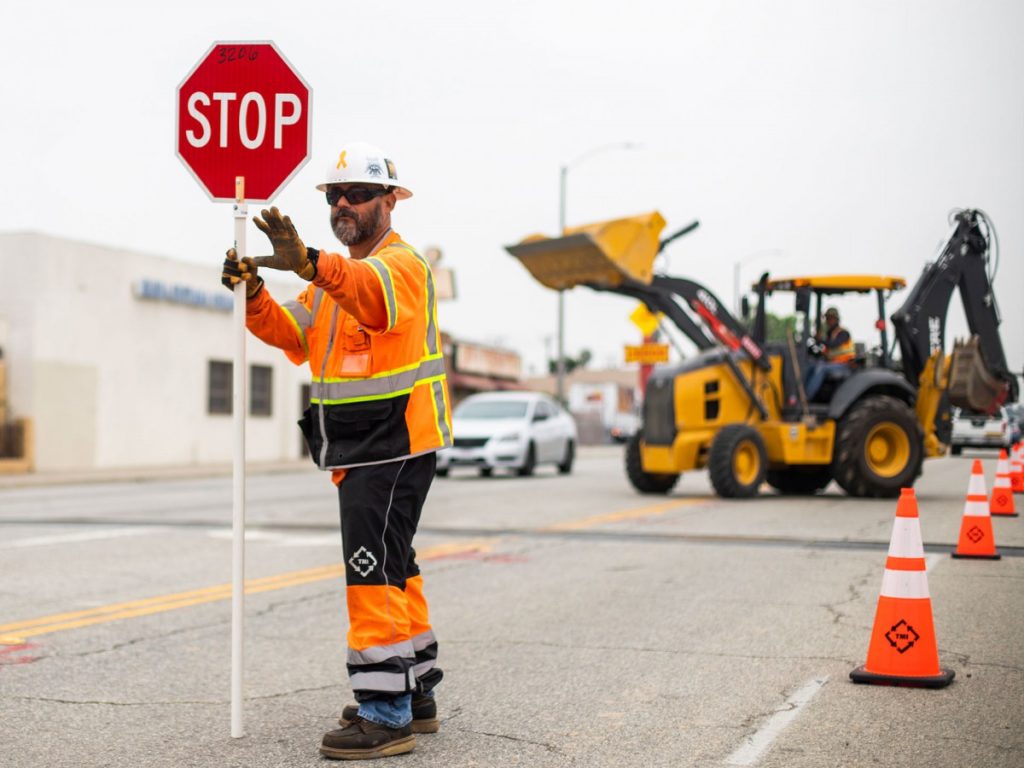There are plenty of dangers on the roadway, even if everything is operating as usual. When work, road maintenance or special events disrupt the normal flow of vehicles, however, the chances of an accident will quickly rise without a proper traffic control plan.

What is a Traffic Control Plan?
When construction jobs, routine maintenance and special events disrupt the function of roadways, a traffic control plan (TCP) is used to ensure the safety of those affected, which includes both road users and workers.
This involves assessing a great number of things, including the nature and scope of disruption, how vehicles and pedestrians navigate through or around the roadways in question, and the precise equipment needed to accommodate such a procedure.
Traffic control plans are essentially instructions in the form of a diagram, which illustrates road conditions and the layout of temporary traffic systems, such as marking, signs and signals. Any equipment used to move traffic through the site is included in the TCP, along with any details on how workers are to be kept separate from traffic.
Why are Traffic Control Plans needed?
The Work Health and Safety Act of 2011 dictates that a person conducting a business or undertaking (PCBU) “must ensure the health and safety of workers engaged… while the workers are at work in the business or undertaking.” When the work disrupts the function of a roadway, this legislation applies to traffic control as well.
A traffic control plan is a work health and safety (WHS) requirement, which means the diagrams should be readily available on the worksite. When it comes to roadworks, there is the added responsibility of ensuring road users can safely navigate through or around the roadway. Traffic control plans must adhere to the respective guidelines of each Australian State and Territory, chiefly the Australian Standard 1742.3. The NSW Traffic Control guidelines, for instance, detail requirements for specific signage, approach speeds of vehicles and traffic volume parameters.
There are a great number of associated risks with traffic control, which of course applies to the roadway but also extends to the surrounding area. A road traffic plan is needed to guarantee there is adequate signage to inform drivers of the upcoming road conditions well in advance.
Traffic controllers carefully consider the placement of signage, regardless of how long the work is expected to take. Providing signage and devices are in accordance with the traffic control for road works guidelines, the equipment is official and thus enforceable by law.
Who needs a Traffic Control Plan?
Any person conducting a business or undertaking (PCBU) whose work will disrupt normal flow of a roadway needs a traffic control plan. This includes construction, roadworks and events. In such cases, the PCBU must enlist the services of qualified specialists to design and implement the best TCP.
TCPs must adhere to the strict guidelines of the respective authorities. You may want to seek help from experienced traffic control plan companies like UVS Group, whose traffic control services adhere to the following Government Road Management Authorities and Traffic Management Registrations Schemes:
- Department of Transport and Main Roads Queensland, Traffic Management Registration Scheme.
- VicRoads Pre-Qualification Scheme.
- Roads & Maritime Services New South Wales.
- Main Roads Western Australia, Traffic Management Registration Scheme
Staying on Track
A traffic control plan needs to be done properly to keep both road users and workers safe. If you need expert assistance with drafting and setting-up NSW traffic control, contact UVS Group by phone (1300 844 355) or email (info@uvsgroup.com.au) for competitively priced Australia-wide coverage 24 hours a day, 7 days a week.


